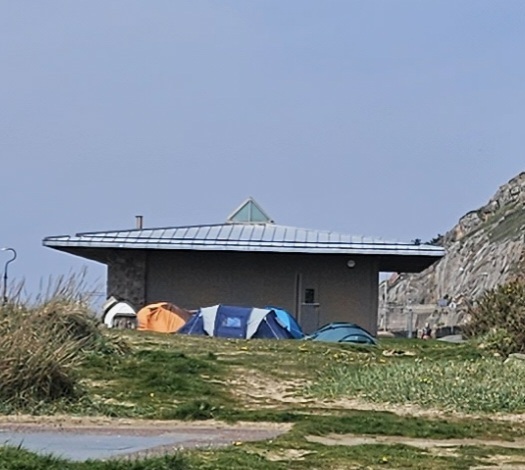Council vows to help rough sleepers

Richard Evans Local Democracy Reporter
Rough sleepers have pitched tents near a north Wales beauty spot.
According to the Local Democracy Service, a camp of around five to six tents has popped up near a shelter on Llandudno’s West Shore.
The tents are believed to have been there since the end of March. Conwy County Council says it is working with the rough sleepers to resolve the issue.
Engagement
A council spokesperson said: “Our housing team is in touch with the individuals at West Shore and has encouraged them to access services that are available. We will continue to engage with them to make sure they get the appropriate help they need.”

Conwy byelaws say it is against the law to pitch a tent unless it is on allocated land. The regulation states: “No person shall without the written consent of the council erect a tent or use a vehicle, caravan or any other structure for the purpose of camping except in a designated area for camping.”
Outreach teams
A North Wales Police spokesman said: “We are aware of the presence of people camping near to the toilets at West Shore and have been working with local partners and the landowner to resolve the issue.”
The council is asking the public to report rough sleepers via the StreetLink website at www.streetlink.org.uk StreetLink enables members of the public to connect people who are sleeping rough with the council’s outreach teams best placed to support them.
Support our Nation today
For the price of a cup of coffee a month you can help us create an independent, not-for-profit, national news service for the people of Wales, by the people of Wales.




